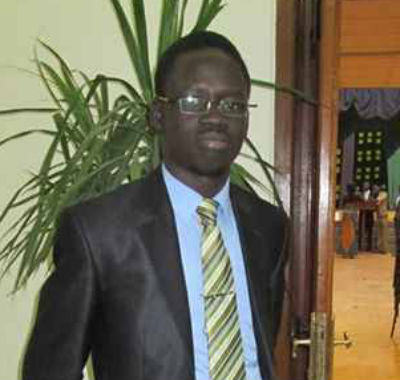 By Tor Madira Machier
By Tor Madira Machier
December 26, 2014 (SSNA) — In the light of their hostile conducts towards the West, African leaders believe and stick to the ideology which defines every segment of social concept that is linked to political, social and economic development of the society in respect to the West as a Western political expansion mechanism. They believe that both democracy and modernisation in all the sectors are Western concepts.
But democracy and modernisation are not western products that the west is trying to export to certain countries that have a shortage of these values. They are universal values that, for many reasons, the west was able to espouse and implement before other countries. Among these reasons was a particular mix of culture, law and leadership that helped the western countries to be in advance of others particularly in Africa in the application of democracy and modernisation.
Although this does not necessarily mean that all westerners abide by these values, western citizens, for the most part, have come to realise that these values serve the good of society and promote personal development.
African leaders have long been resisting the genuine implementation of democracy and modernisation. For centuries, autocracy, dictatorship and regional wars have created a mental blockage preventing people in this region from understanding and digesting these values and how they can help them to progress. The lack of harmony between appreciating these values and the daily struggles against the factors mentioned above prevented democracy and modernisation from reaching the region; the west was accused of exporting certain values that are not keeping with the cultural and the religious values of Africa, for the purpose of westernising the African population. In my opinion, democracy and modernisation are not tradable; they are adoptable to any society that reaches the necessary maturity level. This also explains why youngsters, who are more exposed and broad-minded, tend to digest these values much faster than do older generations.
In reality, older Africans are the ones who are resisting the implementation of democracy and modernisation, as this could place them in inferior positions to the younger generations. Youngsters are ready and willing to espouse and apply democracy and modernisation, but they are facing stubborn resistance from those in power, who accuse the younger generation of being westernised.
This struggle is not limited to South Sudan only, but it is probably taking place in some other part of Africa, Asia and other Arab nations as well.
Democracy and modernisation are interlinked! Modernisation requires developing a structured scientific environment that helps people to innovate and eventually benefits society. You can’t innovate and modernise a society without ensuring freedom of expression, which allows people to challenge the status quo, without applying the rule of law that guarantees that justice is applied and protects innovation, without encouraging free trade to obtain the latest products and up-to-date technology, to be used as a basis for further development.
Without a strong belief in, and proper implementation of, these factors, we will not adopt the universal values of democracy and modernisation.
Peaceful co-existence of all the ethnic groups which constitute the Republic of South Sudan can play a strong role in helping people to better understand and apply democracy and modernisation and to appreciate their purpose and value and this will require citizens to fully understand the ethnic existence in its contexts and contents that obviously do not conflict with democracy and modernisation as a value. Seeing only the downside of democracy and modernisation is the fault of the receivers of these values and their poor application of them. It has nothing to do with the values themselves. However, enclosing citizens within a tightly tribal environment restricts individuals from realising their capacity to create and innovate.
Actually, the purpose of this type of enclosing, or labelling, is to realise political goals by managing and controlling citizens and immobilising their power to think, innovate and act freely. To enable the South Sudanese to ENJOY the maximum benefits of democracy and modernisation, it is critical that citizens be empowered with more freedom, allowing them to produce out-of-the box ideas and to structure their governments to incorporate these ideas.
To properly implement these values South Sudanese need to be more socially and politically mature, with a wide educational spectrum. Enclosing the minds of ancient African dictatorships, still happening at this moment, won’t help this part of the world to progress towards the universal values of democracy and modernisation.
Tor Madira Machier is a South Sudanese student pursuing Law Degree at the University Of Ain Shams in Cairo, Egypt.He can be reached at: to[email protected] or reach him at his twitter account : @TorMadira

